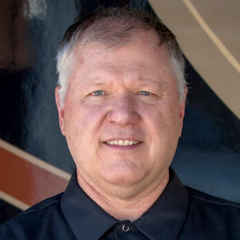
Cold Weather RV Camping: Tips and Equipment for Greater Comfort
Dave SolbergDescription
Cold weather RV camping doesn’t have to entail roughing it and freezing your buns off until the spring thaw. There are many simple steps you can take to ensure your winter camping experience is more comfortable and your equipment remains fully functional.
In this lesson, Dave Solberg discusses a few of his favorite tips for better cold weather RVing, including essential equipment you should install in your water center for guaranteed flow, as well as as additional accessories you might want to have handy in case you’re out there for the long haul. He explains why it could be important to bring along extra propane and battery capacity, and gives you some pro tips for your next cold weather escape!
Cold Weather RV Camping To-Do’s
Your time spent indoors doesn’t have to be all work and no play! Board games and movies are always crowd pleasers, but if you’re feeling adventurous, try some of our RV recipes! Did you know we also have videos for other hobbies and interests? Perhaps inspiration will strike when watching some of our other videos.
Regardless of how you spend your time, we hope you make the most of your cold weather RV camping experience!
We recently received a question from an RV Repair Club member that wants to do some winter camping, and saying, "What should I be aware of in camping in cold weather?" Well, the first thing you need to know, is where your water lines are located and how well they're protected. If you go into below freezing weather and your water lines are exposed to that cold weather, it won't take long and that small little water pipe is gonna freeze up, and could possibly burst. So you wanna be able to put in, maybe you can get an option, where there's a heat pad. Some of them have a winterized, winterizing kit, or not winterizing, a winter kit, that includes a heat blanket, additional batteries, that type of stuff. You wanna be able to maybe supplement that heat.
What I've done using an RV in the wintertime, is just put a small little ceramic heater, down in the water center. And that keeps all the water pump, pipes, everything warm. You can also get a catalytic heater, which runs on the small little propane bottles. Very few fumes, one of the safest heaters you can have inside your coats even, because thing you gotta remember about the RV is, even though you have heat ducts in various places, you don't have that cold air return. So you don't have, you get a lot of pockets of cold air.
So you wanna make sure that you look for those. Otherwise, I would look for additional propane, because you're gonna be using the heater quite a bit. I would look at additional battery capacity as well. That'll all help extend the life and the use of that RV in the wintertime.

My heater does not stay on long enough to heat. When turned on it runs for a few seconds and shuts down. The only way to get it back on is to shut it off and turn it on then it will run for a few seconds again. This happens no matter how high I set the thermostat
We turned on our heater it came on for about 3 seconds. While on the lights flickered and it was sucking the electric up. So we shut off the heater and the lights and power went back to normal.